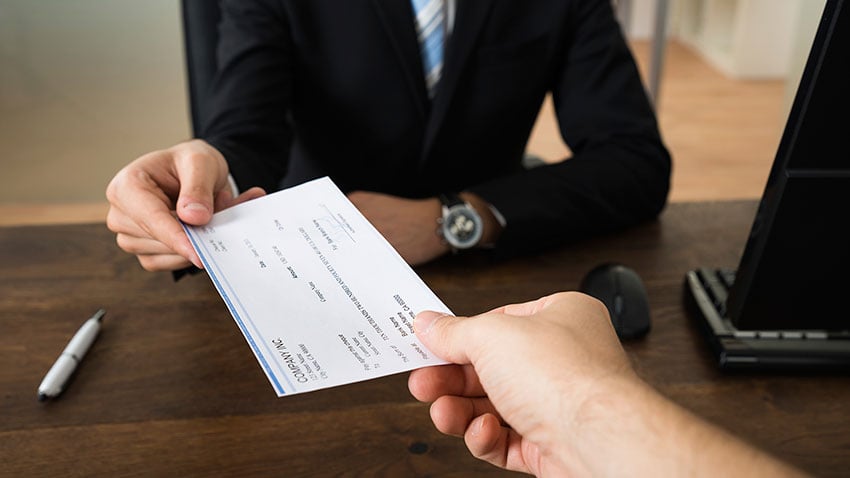
There's been explosive growth in counterfeit personal, business and cashier's checks and money orders in the last few years. This is due in part to the growth of online transactions amongst strangers. Consumers and businesses are losing significant sums in scams because they deposited a check from a stranger, withdrew the funds and then sent money or merchandise before their bank discovered the check was fraudulent.
In these cases, the depositor will most likely be held responsible for the full amount. Why? By depositing and withdrawing the money, the consumer is taking responsibility for the funds. Often the withdrawal cannot be canceled or reversed.
It’s safest not to accept checks from strangers. If you do, tell a bank associate about the circumstances surrounding the check.
It can take a couple of weeks, or longer, before the bank discovers a deposited check is bad. If the other party bothers you about waiting, you are strongly encouraged to tear up their check and stop all communications.
Protect yourself by not using the deposited funds or sending items until you have
confirmation the funds are available to use.
Let’s say you sell a $1,200 item online and you’re sent $4,998. The buyer instructs you to deposit the money and send the excess amount to another account. Likely, the check will be returned as counterfeit and you may need to reimburse your bank for $4,998.
Identifying a counterfeit check can be difficult for a consumer, business owner, and even a bank teller. Here are some red flags of check fraud:
Consider insisting on being paid with a money order or a cashier’s check drawn on a local bank or a bank with a local branch. That way you can take the check to that bank’s branch to ensure its valid.
Don’t depend on a phone number printed on a check or money order. If the check is fake, the criminals may answer and tell you the check is good.
Contact your bank as well as the local law enforcement.

Shannon is a Vice President at Heartland Bank and serves as the Compliance Officer. She has been an associate at Heartland Bank since 2008.
Due to recently increased security requirements, we at Heartland Bank are no longer able to support version 10 or older of Internet Explorer. We are sorry for this inconvenience, and encourage you to upgrade to more secure options such as Internet Explorer 11, Google Chrome, or Mozilla Firefox.